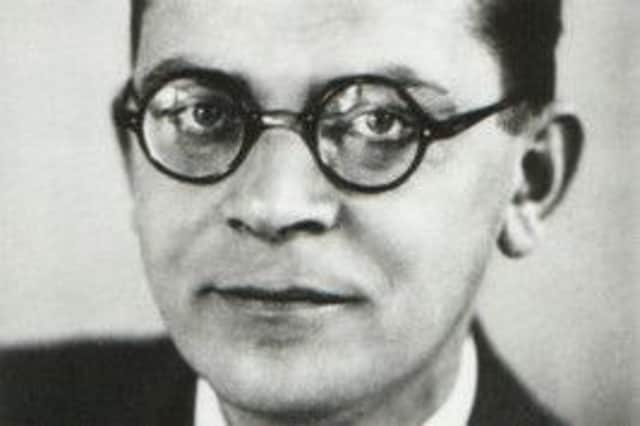Book review: A Stranger In My Own Country


A Stranger In My Own Country
by Hans Fallada
Polity, 300pp, £20
Hans Fallada was scarcely known here until the recent publication of Alone in Berlin, his novel about two ordinary people’s campaign of wartime resistance to the Nazis. Even in Germany, where he had been popular in the pre-war years, his reputation had faded. Alone in Berlin was written in 1946 and published just after his death from an overdose of morphine the following year.
Fallada had a chequered life, serving two short prison sentences for embezzlement in the Weimar years, suffering more than one nervous breakdown, aggravated by his heavy drinking, being imprisoned again, briefly, by the Nazis who always regarded him with suspicion. Nevertheless he chose to remain in Germany rather than following so many anti-Nazi writers into exile. He became a popular novelist and, despite political difficulties, made a good living in the Thirties. In 1944, however, he was confined in a psychiatric hospital-prison after an incident in which he appeared to fire a gun at his ex-wife.
Advertisement
Hide AdThis book was written, secretly, in that hospital-prison in the last months of the war. It is described as a prison diary, but it is really rather a memoir written in prison. Fallada makes no secret of his hatred of the Nazis, and his contempt for them, and he says several times that it is madness to be writing this book because he would certainly be shot if it was discovered. It is not, one has to say, very well written – Fallada had the popular novelist’s weakness for clichés – but it is continuously interesting and it is astonishing that it was written at all.
Nazi Germany was a totalitarian state, with police spies reporting on suspects, and numerous informers assisting them, but we have long known that it was also confused and inefficient. In the early years of the regime, as Fallada happily found, there was still some respect for legality among state, if not Nazi officials. Rivalries in the upper reaches of the party meant that there were competing organisations. Power was capriciously exercised. So, for example, Fallada was at one time engaged by the propaganda minister. Josef Goebbels, whom he detested and feared, to write a film script for Goebbels’ favourite actor, Emil Jannings. His account of this enterprise is fascinating.
Fallada is critical of those writers who went into exile, and insists that those who, like himself, chose to remain in Germany took the braver and more dangerous option. They constituted an “inward emigration”, even internal resistance, and might at any time be arrested and shot. This was true. Nevertheless, although his position was insecure, his books were published, some of them sold very well, and by his own admission he made an adequate living. In contrast the émigré writers couldn’t be published in Germany, and many of them, like Joseph Roth, endured financial hardship. Moreover, many of the exiles were Jewish, as Fallada wasn’t. For them, the choice was between exile and death. In claiming a moral superiority, Fallada seems to have been trying to calm an uneasy conscience.
We, of course, may be glad that he elected to remain in Germany. We wouldn’t otherwise have had Alone in Berlin and we wouldn’t have had this memoir. “I lived the same life as everyone else, the life of ordinary people, the masses”, he writes. If this was true only up to a point – by his own account, his material circumstances for most of the war years were better than, say, those of the hero of Alone in Berlin – he did live in fear and nobody who has not undergone comparable experiences is entitled to criticise him. He was consistently anti-Nazi, despised Hitler, and never believed Germany would win the war. In one passage he recounts a conversation with friends who shared his doubts. One, with the caustic wit characteristic of Berliners said: “One must be prepared for the worst. We might lose the war and keep the Führer.” Later, when the early military successes reconciled many to the war, Fallada “pointed out that the propaganda of Dr Goebbels was unlikely to be more truthful in time of war than it was in peacetime.”
This is a remarkable book. Anyone interested in how it was in wartime Germany will find it as engrossing as Gunter Grass’s memoir, Peeling An Onion.